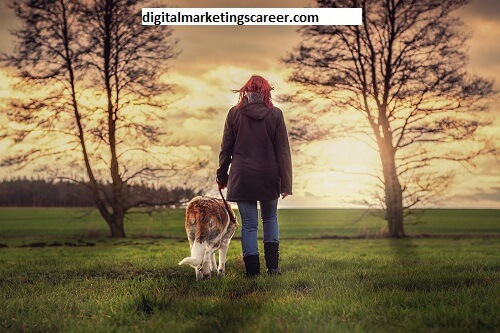How to Choose the Best CRM for a Digital Marketing Agency: Top Features and Recommendations
Of course, any digital marketing agency needs a CRM. Typically, agencies are in charge of managing several clients, campaigns, and streams of data. So it requires more streamlined CRM software to work better for the workflow and improve communication or boost customer interactions.

The thing is, though: there are too many options nowadays, so how do you pick the right CRM? Here is the article on top CRM features a digital marketing agency needs to look out for, along with some of the best options available today.
Why Digital Marketing Agencies Need a CRM?
This article is a digression into why CRM is important for a digital marketing agency. A CRM can be very central to teams so they may track and manage leads. It can also help analyze the interactions a company has with its clients. It can monitor campaign performance and simplify the automation of repetitive tasks with the right features.
A CRM also has an advantage, helping agencies nurture client relationships by providing a unified view of customer interactions across multiple channels, thereby simplifying the presentation of customized marketing strategies. Right CRM ensures the achievement of productivity better organization and stronger client relations for an agency.
Key Features to Look for in a CRM for Digital Marketing Agencies:
When selecting a CRM for a digital marketing agency, the agency requires a CRM. That suits particular needs in that agencies have certain requirements. These include lead and contact management features.
A CRM should also provide agencies with the ability to robustly manage leads and contacts. While they will be able to track prospects from the first contact through the sales pipeline. Look to features that enable you to segment contacts, and handle multiple pipelines. And assign tasks to specific team members to eliminate every lead that falls between the cracks.
Automation and Workflow Management:
Automation saves agencies a huge amount of time. Most CRMs come with marketing automation features, allowing the agencies to set schedules for follow-ups or automated emails amongst other repetitive tasks. Workflow automation allows for consistency and frees team members to become even more strategic.
Campaign Tracking and Analytics:
Agency monitoring of campaign performance is of significant importance. A CRM that comes with analytics can help you in the tracking effectiveness of campaigns, monitor KPIs, and then give you the capacity to create customized reports. The information helps agencies enhance their campaigns and show value to clients.
Connectivity with Marketing Tools:
With Google Analytics, social media, and email marketing among their aids. Digital marketing agencies will require a CRM that is compatible with such tools and can allow the free flow of data while having a harmonious marketing policy.
Customizable Dashboards and Reports:
Every client has their goals and KPIs differently. A CRM that provides customizable dashboards and reporting options enables agencies to tailor reports based on the preference of every client. It also allows the teams to have the most relevant information at a glance. And it makes multiple campaigns far easier to keep on top of.
Collaboration Tools:
Digital marketing integrates and combines different roles which may include an account manager, a designer, a copywriter, and a strategist. A CRM that incorporates collaboration or connectivity to team collaboration tools. Such as Slack or Microsoft Teams will enhance better communication and mutual understanding of the client’s goals and deadlines.
Recommended Leading CRM for Digital Marketing Agencies:
Now that we have an idea of what to look for, let’s consider some of the best CRM options specific to digital marketing agencies.
HubSpot CRM:
HubSpot CRM has become one of the popular choices for agencies, both for full access to all of its features, ease of use, and scalability. It is free with other additional advanced marketing, sales, and services functionality available with paid plans.
HubSpot CRM has exceptional lead tracking, along with a few automation options. And a highly visible sales pipeline, making it better suited for running clients and the performance of the campaign. It also easily integrates with many digital marketing tools, like Google Ads and social media. Which offers a holistic view of all marketing activities.
Zoho CRM:
Zoho CRM has high customization, which is suitable for all agencies. This consists of lead scoring, workflow automation, and integration with social media, which are all essential for digital marketers.
Zia, the AI assistant from Zoho, gives agencies insights into customer behavior, and the multi-channel communication feature of the CRM makes it easy to interact with clients through email, social media, and phone. The CRM integrates with other Zoho products such as the all-in-one email marketing solution provided by Zoho Campaigns.
Salesforce:
This is the leader in the CRM space offering a solution particularly catered to agencies through Salesforce Marketing Cloud. Deep customization options available here allow agencies to set up certain specific workflows, manage pipelines of complexity, and yield detailed reports.
With AI-powered insights to predict the needs of the customer combined with the facility to track multi-channel campaigns through integration with almost all digital marketing tools, Salesforce is a feasible option for agencies and businesses.

Agile CRM provides wide functionalities, a steep learning curve, and a higher price compared with other CRM systems; however, when it comes to the amount of power or scalability, larger agencies handling multiple clients and campaigns will benefit from this system.
Application for agencies:
Application for agencies of small to medium size, providing a cost-effective solution with a powerful marketing and sales arsenal. Agile CRM therefore is good at contact management with email tracking capabilities and social media integration besides marketing automation.
It also has a drag-and-drop campaign builder and hence easy for agencies to set up automated workflows and track the campaign performance. Agile CRM is affordable and user-friendly, thereby suitable for the not-so-large budgets of an agency.
ActiveCampaign:
It is a combination of powerful CRM features with campaigning marketing automation. It is suitable for agencies that focus on email marketing and customer segmentation. The CRM feature helps users automate follow-up sequences and track client engagement in their respective business premises.
ActiveCampaign: ActiveCampaign emphasizes personalized communication with clients, enabling agencies to better with their clients. Not only does it offer integration to platforms such as WordPress Shopify and Zapier but the integration that marketing can get.
The size, budget, and requirements of an agency will decide the best CRM for a digital marketing agency. Both HubSpot CRM and Zoho CRM are a good solution for an agency if it is looking for a user-friendly and value-for-money kind of solution, whereas Salesforce CRM is a more mature platform having features that are best suited for large agencies or agencies having big, complicated needs.
Agile CRM and ActiveCampaign: Agile CRM and ActiveCampaign generally appeal to small agencies because they look at the ease of use and superior automation more amicably.

In the long run, a CRM is more than just a useful tool for agencies-they are valuable for nurturing better client relationships, efficiency improvements in work, and more effective result delivery. As such, a digital marketing agency can streamline operations for optimal success of the agencies by making the right CRM choices. This also ensures that they strengthen client satisfaction to achieve sustainable success.
